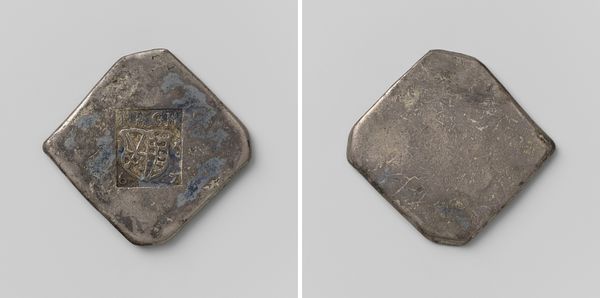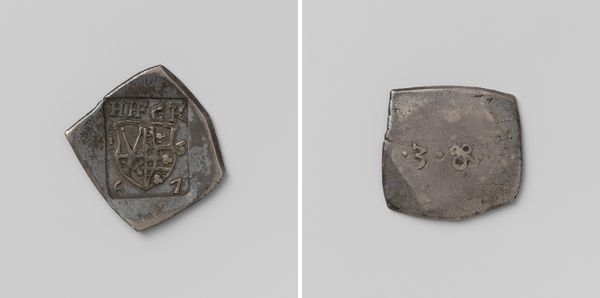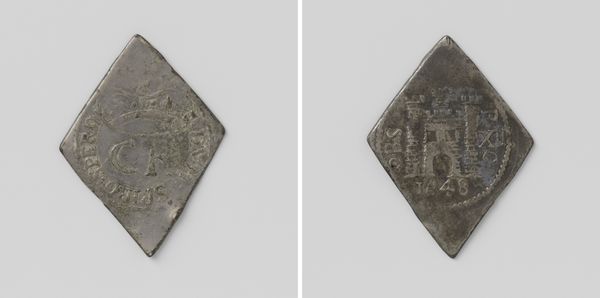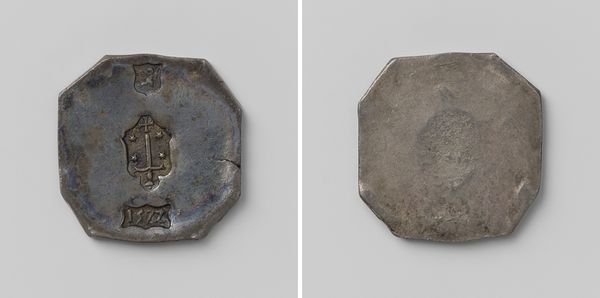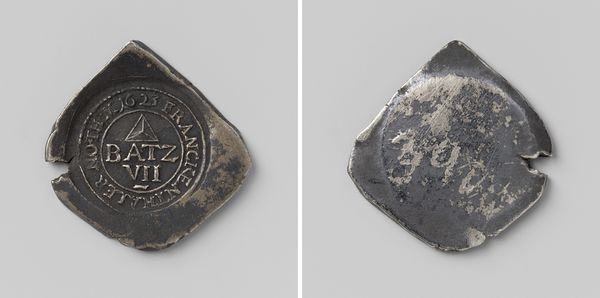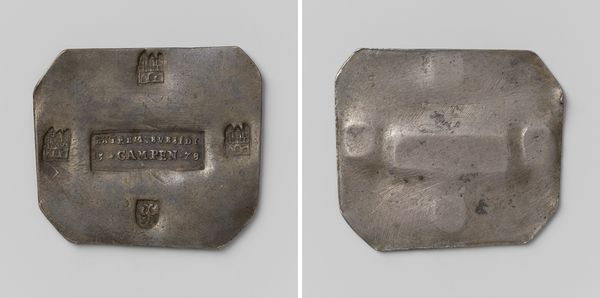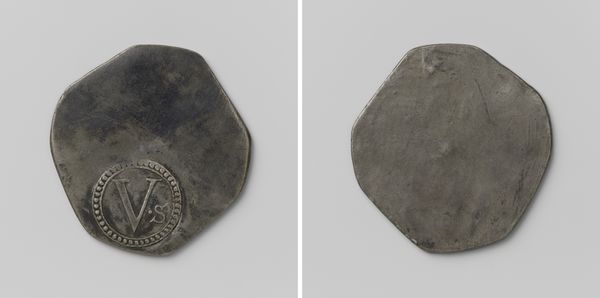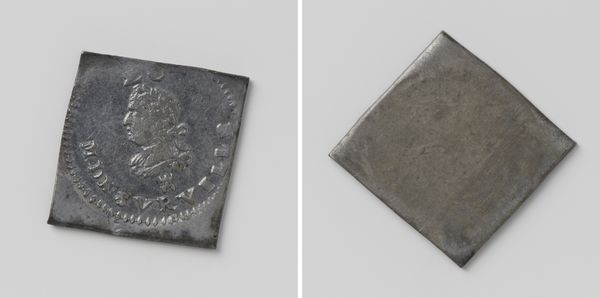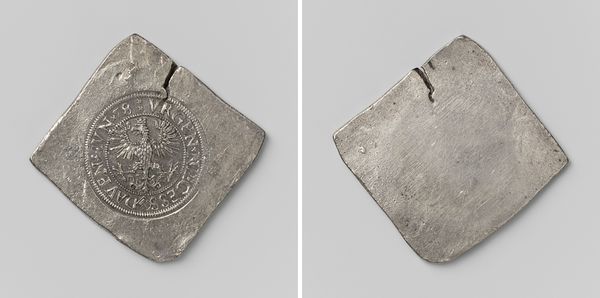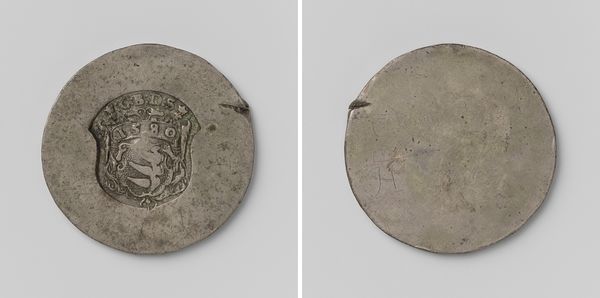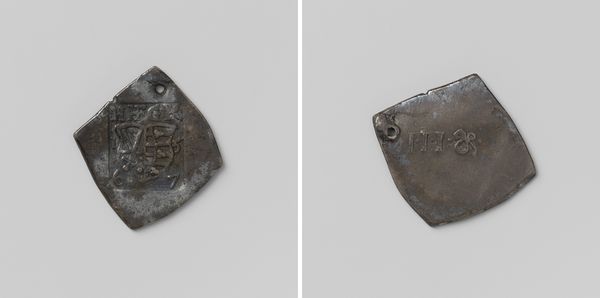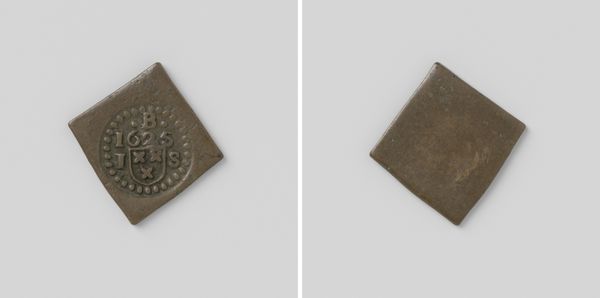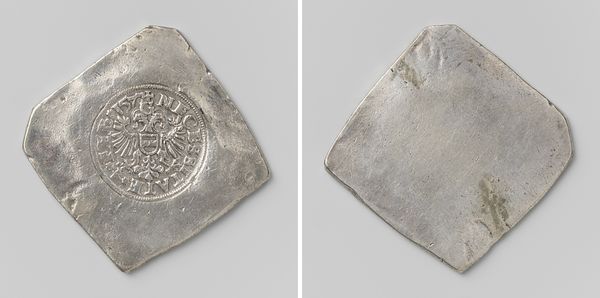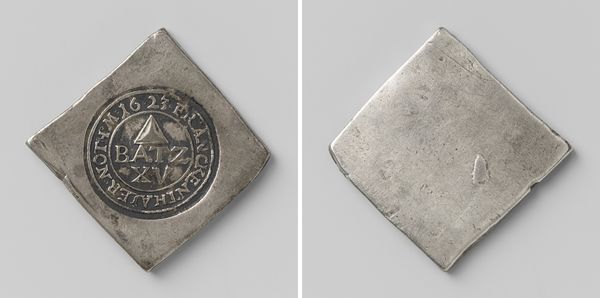
print, metal, relief, embossing
#
portrait
#
medieval
# print
#
metal
#
relief
#
embossing
#
geometric
Dimensions: height 3.3 cm, width 3.4 cm, weight 8.75 gr
Copyright: Rijks Museum: Open Domain
This small, lozenge-shaped coin, a ‘Kwart taler’, was made in Magdeburg out of necessity during a siege in 1631. Coins are usually understood in terms of their economic function, but consider the material properties of this piece. It's made of a base metal, not silver or gold. The roughly cut edges and stamped imagery – the city's coat of arms and the year – speak to its hasty production under duress. The coin is a symbol of resilience. Besieged, the city was cut off from usual supply lines. Standardized currency was unavailable. So, Magdeburg took whatever metal it could find and crudely fashioned its own. In this context, the material and making of the coin testify to human ingenuity in crisis. It invites us to consider the relationship between objects and the circumstances of their creation, highlighting the critical role of craft in everyday survival.
Comments
No comments
Be the first to comment and join the conversation on the ultimate creative platform.
